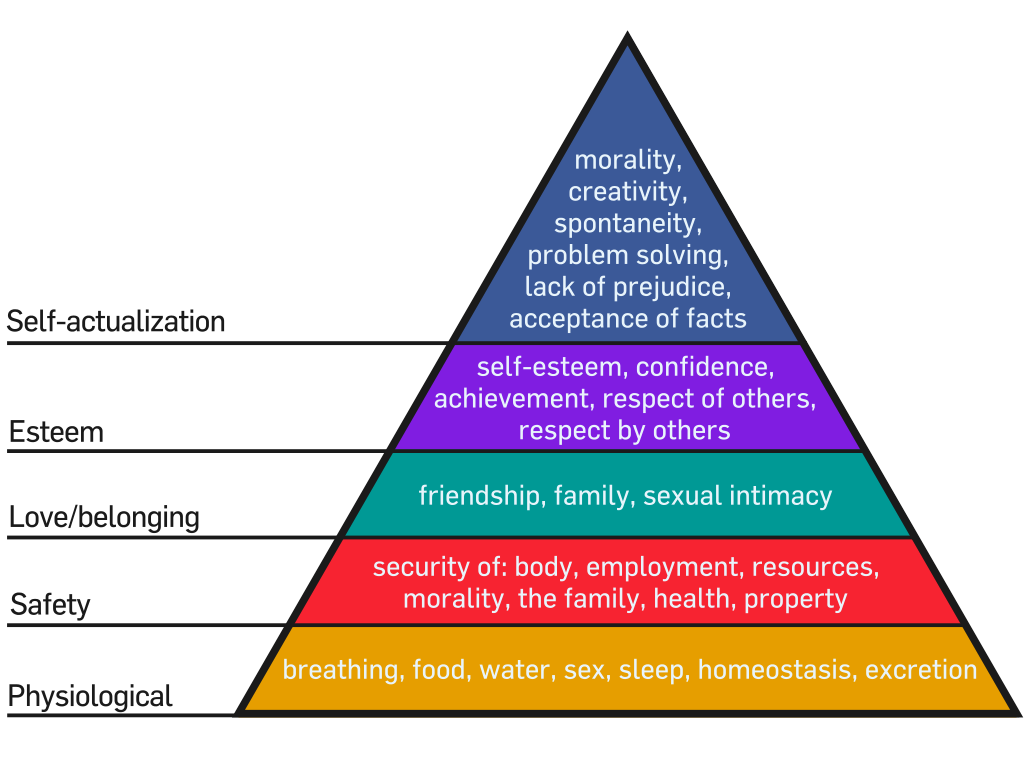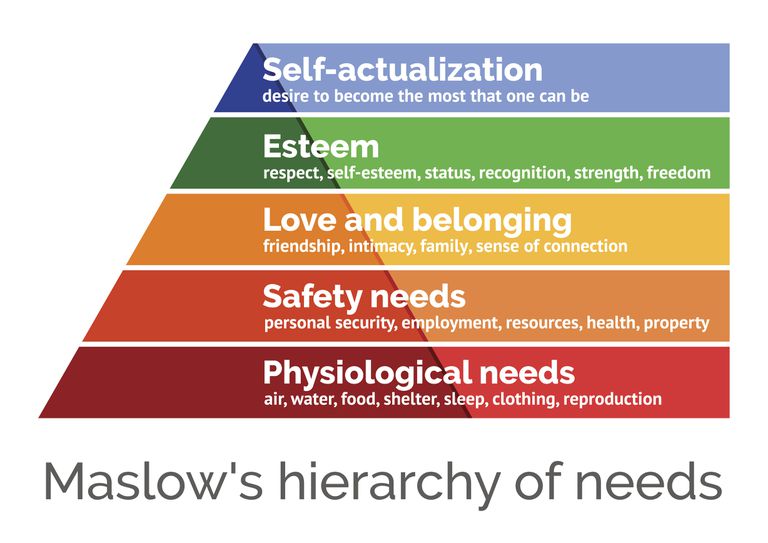- Mar 17, 2015
- 17,340
- 9,285
- Country
- United States
- Gender
- Male
- Faith
- Christian
- Marital Status
- Married
Interesting different issue. Consider this version of Maslow's hierarchy:

Since a person cannot generally do the higher levels well (or at length) in the hierarchy without having the lower levels met.....
....then when it bothers you that someone on the internet or in person doesn't have:
lack of prejudice
or
acceptance of facts
Might it be they need some lower levels needs met first. That's what the idea is above.
We'd expect so. Therefore the best help against prejudice or obstinacy about facts isn't argument.
Not argument. Doesn't meet needs....
But the only real help is....need meeting in various levels under that top level. You might be someone that can help them.

Since a person cannot generally do the higher levels well (or at length) in the hierarchy without having the lower levels met.....
....then when it bothers you that someone on the internet or in person doesn't have:
lack of prejudice
or
acceptance of facts
Might it be they need some lower levels needs met first. That's what the idea is above.
We'd expect so. Therefore the best help against prejudice or obstinacy about facts isn't argument.
Not argument. Doesn't meet needs....
But the only real help is....need meeting in various levels under that top level. You might be someone that can help them.
Last edited:
Upvote
0


